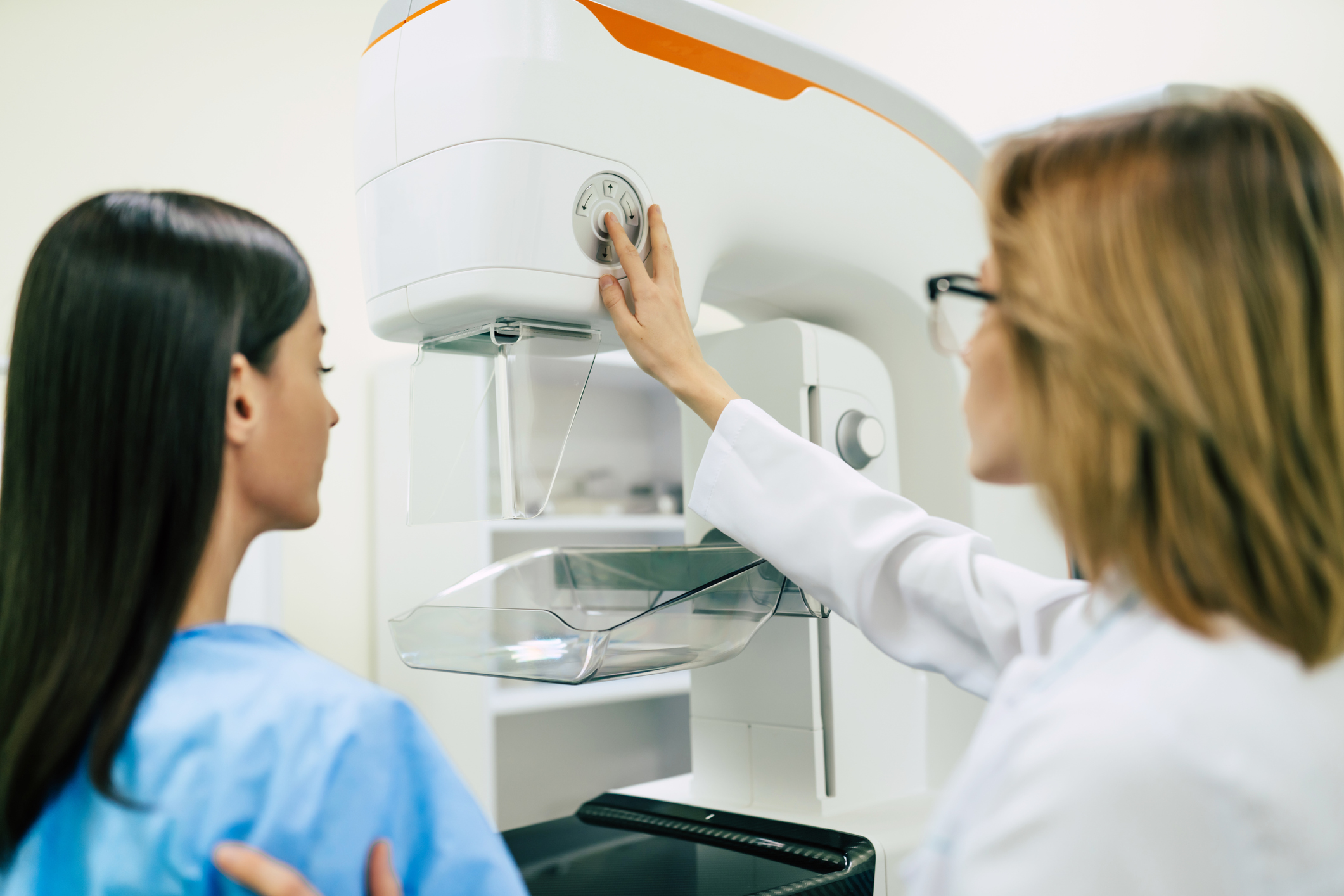Cancer remains one of the leading causes of death worldwide, but did you know that many cancer-related deaths can be prevented through early detection and treatment? Cancer screenings play an important role in detecting cancers at an early stage, often before symptoms appear, significantly improving treatment outcomes and survival rates.
The primary advantage of cancer screenings is the early detection of cancerous cells or abnormal tissue that may develop into cancer. Early-stage cancers are generally more treatable and often curable, compared to cancers diagnosed at a later stage when they have spread or become more aggressive. For many cancers, including breast, cervical, colorectal, and lung cancers, early detection through screening has been associated with significantly reduced mortality rates.
Cancer Risks
Anything that increases the chance of cancer is called a cancer risk factor. Cancer risk is measured in different ways using findings from surveys and studies. Not every person with one or more risk factors will develop cancer, and cancer can develop in some people who don’t have any known risk factors.
Some screening tests are used only for people who have known risk factors for certain types of cancer, and they may need to be screened more often or at an earlier age than others. This may include people with any of the following:
- A personal or family history of cancer.
- Specific gene mutations that have been associated with cancer.
- Exposure to cancer-causing agents such as tobacco or chemicals in the workplace.
- A blood clot that occurs for no specific reason.
- Advanced age.
Avoiding some of the following risk factors may reduce your risk of developing certain cancers:
- Alcohol
- Cancer-causing substances
- Chronic inflammation
- Poor diet
- Hormone imbalances
- Immunosuppression
- Obesity
- Radiation
- Tobacco
Available Tests and Recommendations by Age and Risk Group
The recommendations for these screenings vary based on several factors, including age, family history, and individual risk factors. Each type of test plays a vital role in the early detection strategy, tailored to meet the needs and risks of different individuals. Cancer screening guidelines change from time to time as new research becomes available. For average-risk individuals, the recommendations are as follows:
- Cervical Cancer Screening: Recommended for women, primarily ages 25-65. This includes periodic HPV testing and pap smears. If the cervix has been removed for non-cancerous or non-pre-cancerous reasons, then the screening is not needed.
- Breast Cancer Screening: Women can start this screening at age 40. The 2D or 3D type of mammogram is what is recommended. A breast MRI is recommended for women with an increased risk for breast cancer (due to a family history of breast or ovarian cancer or women who were treated for Hodgkin’s disease).
- Colon Cancer Screening: Starts at age 45 with either a stool test or a colonoscopy. The good thing about a colonoscopy is that it can prevent cancer by removing polyps before they ever develop into cancer.
- Prostate Cancer Screening: Men should start prostate cancer screening between ages 45-50 with a PSA (prostate-specific antigen) blood test. Shared decision-making between the patient and healthcare provider should be used to determine if a rectal exam is also needed.
- Lung Cancer Screening: A yearly screening with a low-dose CT (computed tomography) scan is recommended for people ages 50-80, who smoke, have previously smoked, and have a 20-year or more pack-year history. Pack years are the number of years a patient has smoked multiplied by the maximum number of cigarette packs smoked per day.
- Multi-Cancer Detection test: This is a blood test that can detect many different types of cancer. More than 50 types of cancers, including melanoma, lymphoma, pancreatic, and ovarian cancer are screened for. Most insurances don’t cover this test at this time. These types of tests detect cancer signals and predict what area in the body the signal comes from. A test result of “Cancer Signal Not Detected” does exclude the possibility of cancer. A test result of “Cancer Signal Detected” does not necessarily mean there is cancer and requires further confirmatory diagnostic tests.
- Skin Cancer Screening: Checking your skin for moles periodically can alert you to suspicious changes. Skin cancer is one of the most frequently detected cancers although usually most types are not deadly. High-risk individuals are lighter-skinned, sun-burn easily, have freckles, red or blonde hair, or family history of skin cancer.
- Ovarian Cancer Screening: Some women may wonder if they should be screened for this. There isn’t a universal screening program in place for ovarian cancer. For one reason, there is no one great test. Secondly, in comparison to the other cancers above, ovarian cancer is rarer. However, a combination of tools, including pelvic ultrasound, a cancer marker blood test called CA-125, risk factors and screening for common symptoms can help your healthcare team decide if further investigation is necessary for you.
- Bladder and Kidney Cancer Screening: There are no routine guidelines for bladder and kidney cancer screening for average-risk people. A simple urinalysis may alert your medical provider to signs of cancer, as well as symptoms you may be asked about during routine exams. High-risk individuals may be offered imaging or genetic tests.
- Other Cancer Screenings: Most other cancers such as endometrial, liver, pancreatic, lymphoma, leukemia, and thyroid have no specific screening guidelines for average-risk individuals. Your healthcare provider will likely do screening blood tests, a physical exam, ask questions about certain symptoms, your past medical history, family history, and social history during your annual wellness exam to determine the need for further investigation.
Why is screening for cancer important?
The primary aim of cancer screening is to significantly decrease both the incidence of illness and the risk of death associated with cancer, ultimately saving lives. Evidence strongly supports that routine screening tests are instrumental in reducing the burden of cancer. For instance, mammograms are vital for early breast cancer detection, and Low-Dose CT scans play a similar role in identifying lung cancer at an early stage. Additionally, screenings like pap smears and colonoscopies not only detect cancer early but can also prevent the progression of pre-cancerous lesions into full-blown cancer.
As with everything in medicine, there are risks and benefits. Screenings can be painful, costly, and lead to false positive results (a positive test but not cancer). This can cause worry, require additional doctor’s visits and other tests like scans and biopsies. Take this example, around 10% of women will receive a false positive result at an annual mammogram screening, and over ten years of regular screening mammograms, as much as 45% will receive a false positive test result.
Basic Tips for Cancer Prevention for All Ages:
Making healthy choices plays a significant role in influencing your overall health and can reduce your risk of developing cancer and other diseases. This encompasses a strict no-smoking policy, maintaining a healthy weight, regular exercise, and a diet rich in fruits, vegetables, and whole grains – while limiting or avoiding processed meats, sugary beverages, and processed foods are essential preventive measures.
Conducting annual checkups with your TopLine MD Alliance affiliated Physician, adhering to recommended screening guidelines, and promptly reporting any persistent unusual symptoms can significantly aid in early detection and increase the chances of successful treatment.
Dr. Jennifer Romero is a proud member of the TopLine MD Alliance practicing Primary Care in Broward County.
The TopLine MD Alliance is an association of independent physicians and medical practice groups who are committed to providing a higher standard of healthcare services. The members of the TopLine MD Alliance have no legal or financial relationship with one another. The TopLine MD Alliance brand has no formal corporate, financial or legal ties to any of the affiliated physicians or practice groups.





